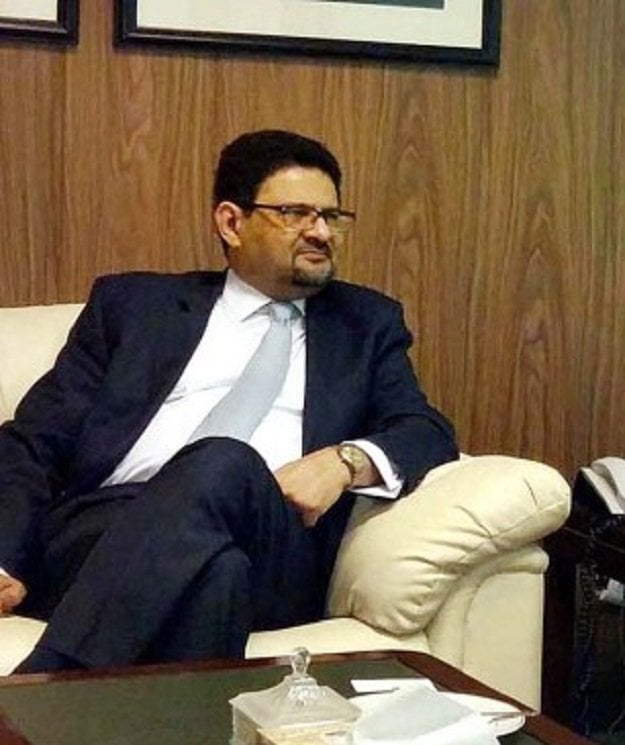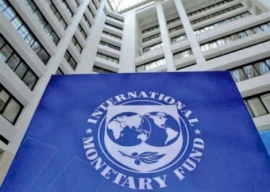
Out of 48 general consensus recommendations that the Senate has given, the finance minister has indicated accepting about 42 of them.
The general recommendations would address most of the concerns of the opposition parties in addition to accommodating the business interests of some of the senators.
Centre uses petrol levy to cut share of provinces
But the finance minister remained non-committal on the issue of aligning taxes and duties on hybrid and electric cars.
In the budget, the government has proposed to cut duties and taxes on electric cars but retained higher taxes on hybrid cars.
The consensus on almost 80% of the recommendations was achieved during a meeting between the senators belonging to the opposition parties and Minister for Finance Dr Miftah Ismail, indicating that the government is keen to accommodate the opposition parties for smooth sailing of the budget.
This also suggests that the political parties are ready to work together on important economic issues.
The senators from the mainstream opposition parties, who are also members of the Senate Standing Committee on Finance, met on Wednesday with the minister for finance.
They discussed the recommendations forwarded by the upper house of parliament to be accommodated in the Finance Bill.
Senate Deputy Chairman Saleem Mandviwalla, Standing Committee on Finance Chairman Senator Farooq H Naek, PTI’s Senator Mohsin Aziz and MQM’s Senator Mian Atteeq Shaikh met with the minister on the day the Senate approved those recommendations.
The finance minister has promised to accept all those recommendations that would not adversely affect revenue projections for FY2018-19.
SC seeks explanation on taxes imposed on petroleum products
The ruling party is facing a challenge of getting the budget smoothly passed from the National Assembly after defections by some of its members. There are also concerns that some of the PML-N legislators may abstain from the voting.
“The government’s decision to accept the Senate’s recommendations has nothing to do with the politics and the decisions were taken in the larger interest of the country,” said Senator Saleem Mandviwalla while talking to The Express Tribune.
He said the Minister has promised to accept about 80% of the recommendations, which was a major achievement.
The finance minister is expected to wind up the ongoing debate on the budget in National Assembly today (Friday).
He would formally announce the decisions to accept the Senate’s major recommendations.
The finance minister has declined to accept the Senate’s recommendation to increase the income tax rates for salaried and business individuals in the range of 50% to 100% from July, depending upon the income group.
After the rejection, the highest income tax rate slab will remain 15%, which the Prime Minister has reduced from the maximum of 35%.
Former finance secretary Dr Waqar Masood and MQM Senator Mian Atteeq Shaik had pushed the case for increasing the income tax rates during the standing committee meeting.
The finance ministry has also shown exasperation over the criticism made by the former finance secretary on the budget assumptions.
The ministry officials argued that the Budget 2018-19 was more realistic than the budgets the PML-N and the PPP governments had presented when Dr Waqar Masood was the finance secretary.
Moreover, the finance Ministry also blamed its former secretary for a flawed Gas Infrastructure Development Cess law, which has created more problems for it.
The finance minister vowed to address those legal issues and said that the government would promulgate GIDC amendment Ordinance before the end of its term.
The finance minister also did not agree to the Senate recommendation to nominally increase the petroleum levy rates as against the government’s proposal to increase the rates up to 200%. The government expects minimum Rs480 billion revenues from the increase in petroleum levy rates, which will neutralize the losses due to various tax concessions given in the budget. The government has proposed Rs30 per litre levy on all petroleum products.
The finance minister also did not accept the Senate recommendation to withdraw 1% increase in customs duty rates. The government expects to earn minimum Rs28 billion revenue due to additional 1% customs duty that is expected to take effect from this month.
The finance minister also did not give his final words on the issue of withdrawing the proposed increase in customs duties on the import of soybean oil, which is expected to push the cooking oil prices up by Rs5 per kilogram.
1731583017-0/diddy-(42)1731583017-0-405x300.webp)


1719315628-0/BeFunky-collage-(8)1719315628-0-165x106.webp)


1731829111-0/Copy-of-Untitled-(8)1731829111-0-270x192.webp)



1731825692-0/Express-Tribune-(1)1731825692-0-270x192.webp)






COMMENTS (1)
Comments are moderated and generally will be posted if they are on-topic and not abusive.
For more information, please see our Comments FAQ